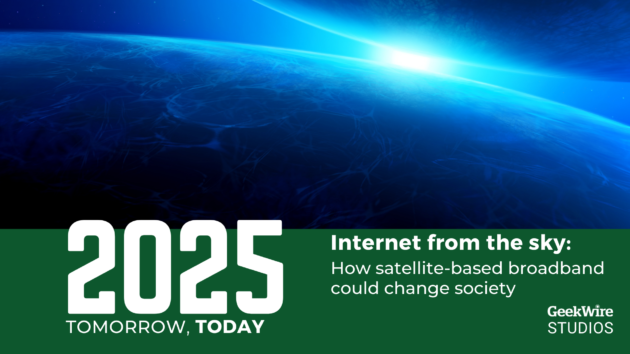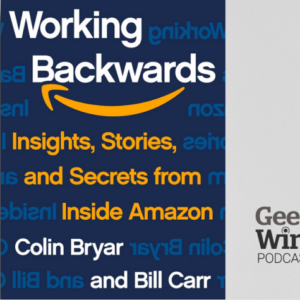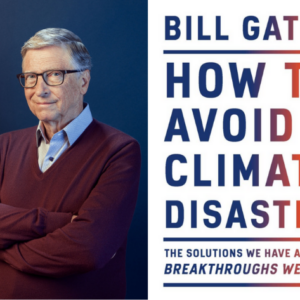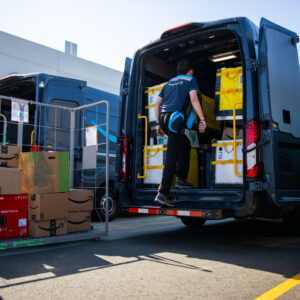
Imagine a world where high-speed internet blankets every corner of the globe, transforming the way people access health care, education and entertainment. That’s the promise of up-and-coming satellite broadband — an ambitious and controversial plan to connect far reaches of the planet.
Amazon founder Jeff Bezos and SpaceX founder Elon Musk are attacking the opportunity with vigor and billions of dollars, hoping they can solve an elusive problem of getting Internet connectivity to the masses no matter where they live.
But the concept is not new. In fact, some of the original seeds were planted in the Pacific Northwest decades ago when billionaires Bill Gates, Craig McCaw, Boeing and others bankrolled the ill-fated Teledesic which also promised a constellation of low-Earth orbit satellites.
In our latest episode of 2025: Tomorrow, Today, we take a close look at the promise and peril of the new satellite broadband constellations like Starlink, OneWeb and Amazon’s Project Kuiper. We talk to experts in the field to discuss the technical challenges of satellite broadband, the potential societal benefits and who’ll regulate space.
Our guests on the show include:
- Rob Meyerson, the former president of Blue Origin, the space company started by Amazon founder Jeff Bezos. He’s also a partner with C5 Capital, a space investment firm.
- Saadia Pekkanen, a University of Washington professor and the founding co-director of the Space Policy and Research Center. She specializes in the commercial, legal and security policies shaping outerspace affairs.
- David Patterson, a veteran aerospace engineer and first employee at Teledesic.
The satellite broadband efforts are taking shape right before our eyes. In fact, stargazers will start seeing more low-Earth orbit satellites in the coming years buzzing across the night sky, something that’s already upsetting amateur and professional astronomers.
SpaceX’s Starlink already operates more than 1,300 low-Earth orbit satellites, with thousands more in the pipeline. Meanwhile, guidelines this week released by the Federal Communications Commission are designed to make sure satellite collisions and the subsequent space debris are minimized.
Listen to today’s episode here, and subscribe to 2025: Tomorrow, Today in any podcast app to catch future episodes. Continue reading for highlights.
- On the early technical challenges of satellite broadband: “It’s sort of like playing three-dimensional whack-a-mole. You’d come up with all of the problems to solve and each one we’d solve, another one would prop up someplace else.” — David Patterson, minute 7.
- The wild, wild universe of space regulations: “This whole idea of space traffic management where we have clear rules of the road about responsible behavior, not just by governments, but also corporations in space is I think an extremely important one. And you’re asking me if that structure has gone into place: No, it has not. Right now, we’re at the stage where the technology is sort of going into place, but law and policy and regulation do need to catch up and make sure that things remain stable and peaceful in space.” — Saadia Pekkanen, minute 13:25.
- On the next frontier of space innovation: —”What gets me the most excited is that we’re getting to the point where we can start to build new businesses on top of space infrastructure developed by others. So having global broadband will bring economic development to many areas of the world and raise economies and opportunities like remote education and tele telehealth are just a few. And I believe there’s going to be many more opportunities in areas like earth science, time and location service, and then applications of IOT, the internet of things.” — Rob Meyerson, minute 21.
Subscribe to 2025: Tomorrow, Today in Apple Podcasts, Google Podcasts, Spotify, Stitcher or any podcast app. This podcast is a partnership of GeekWire Studios and Northern Trust. Produced and edited by Josh Kerns of Cypress Point Strategic Communications.





